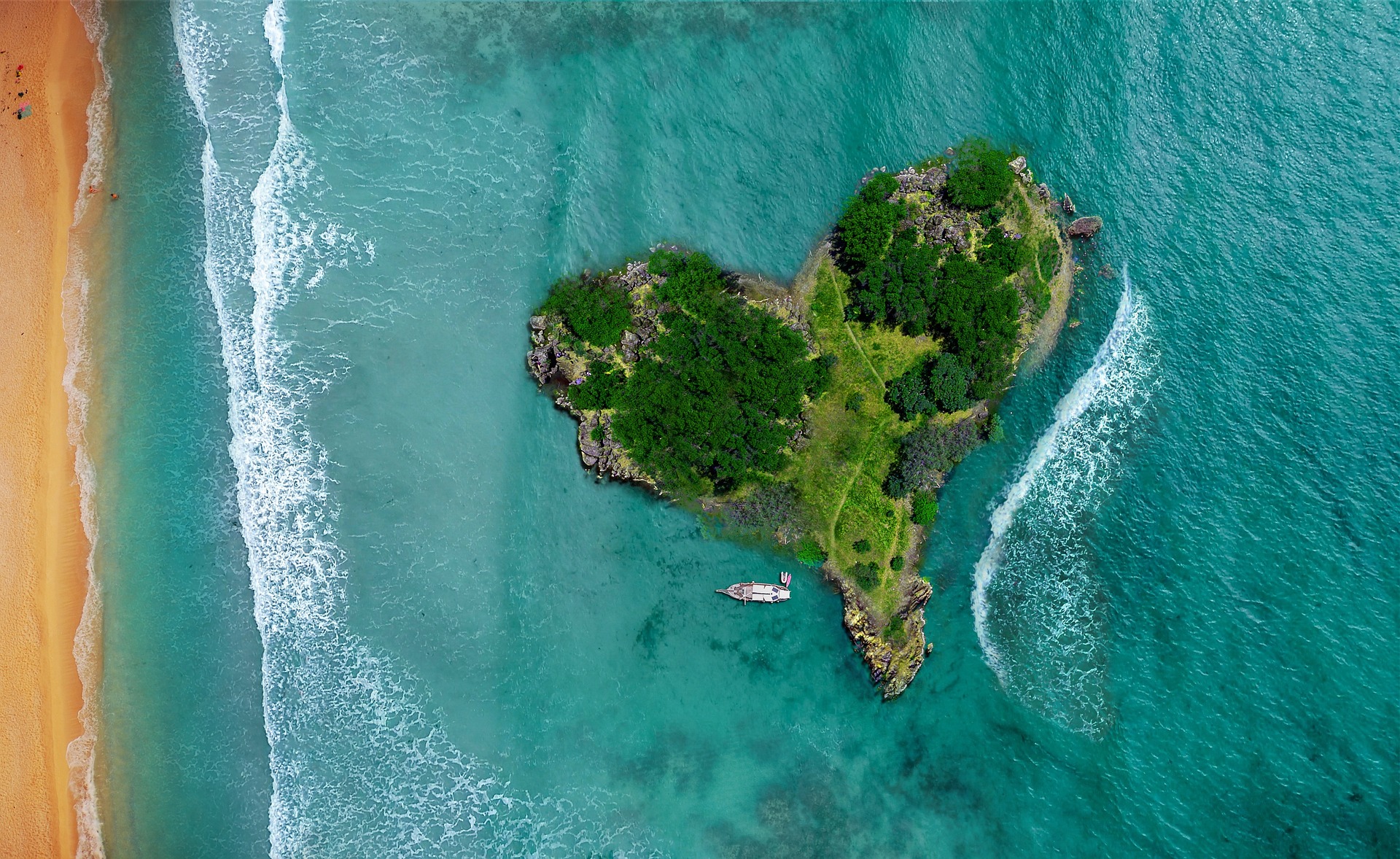Island Hopping Beyond the Mainstream: Archipelago Adventures
In a world where mainstream travel destinations often steal the spotlight, archipelago adventures offer a refreshing antidote to overtourism. These chains of islands scattered across our planet's oceans present travelers with an opportunity to experience diverse cultures, ecosystems, and adventures within a relatively compact geographical area. Island hopping isn't just about famous destinations like Greece or Hawaii—it's an entire travel philosophy that encourages exploration of lesser-known island chains where communities preserve unique traditions, and natural beauty remains relatively untouched. The practice connects travelers to maritime cultures, ancient navigation techniques, and ecosystems that exist in delicate balance with human inhabitants. This distinctive form of travel rewards the curious with intimate experiences across multiple distinct microcosms.

The Global Tapestry of Unexplored Archipelagos
While many travelers immediately think of Mediterranean or Caribbean island clusters, our planet hosts remarkable archipelagos in every ocean. The Faroe Islands between Norway and Iceland offer dramatic landscapes where vertical cliffs plunge into turbulent waters. Japan’s Ogasawara Islands, despite being administratively part of Tokyo, remain so remote they’re nicknamed “The Galapagos of the East.” The Raja Ampat archipelago in Indonesia comprises over 1,500 small islands housing the planet’s most diverse marine ecosystem. Finland’s Archipelago Sea contains more than 40,000 islands—most uninhabited—creating a maze-like wonderland for kayakers and sailors. Chile’s Chiloé Archipelago preserves wooden churches recognized by UNESCO alongside a mythological tradition blending indigenous and European influences. These varied clusters demonstrate how island chains preserve distinct cultural identities while offering adventure opportunities unavailable on mainlands.
The Historical Significance of Island Networks
Archipelagos have functioned as crucial networks throughout human history, often operating as self-contained civilizations with sophisticated maritime cultures. Polynesian navigators famously mastered long-distance ocean voyaging without instruments, connecting islands across vast Pacific expanses using only celestial navigation and ocean pattern reading. In the Mediterranean, island chains functioned as stepping stones for trade that connected ancient civilizations, with each island developing specialized roles within broader economic systems. The Scottish Hebrides maintained Gaelic language and traditions long after mainland assimilation into broader culture. Many archipelagos became testing grounds for colonial powers, resulting in complex cultural hybrids visible today in places like the Azores, where Portuguese heritage blends with influences from centuries of international maritime traffic. Understanding these historical contexts enhances the modern island-hopping experience, revealing layers of meaning behind current customs and architectural styles that might otherwise go unnoticed.
Planning Multi-Island Adventures Effectively
Successful archipelago exploration requires planning approaches different from conventional single-destination travel. Transportation logistics become paramount, with travelers needing to research inter-island ferry schedules that may change seasonally or operate irregularly. Weather patterns affect maritime connections more significantly than land-based transportation, necessitating flexibility and contingency plans. Accommodation strategies must balance between booking ahead for popular islands while maintaining scheduling flexibility. Many experienced archipelago travelers adopt a hub-and-spoke approach, establishing a base on a larger, well-connected island while making day trips or short stays on surrounding smaller islands. Packing considerations differ significantly, with waterproof storage solutions becoming essential when frequently boarding small boats in variable conditions. Equipment choices should reflect the prevalence of water-based activities, with quick-drying fabrics, appropriate footwear for wet conditions, and sun protection for increased reflection from surrounding waters. Travelers should also respect that many island communities face resource constraints, making conservation practices particularly important.
Lesser-Known Archipelagos Worth Discovering
Beyond famous island chains lie remarkable archipelagos awaiting discovery by adventurous travelers. The Andaman Islands between India and Myanmar offer extraordinary marine environments and connections to indigenous cultures maintaining traditional lifestyles. The Mergui Archipelago in Myanmar contains approximately 800 islands, many completely uninhabited, where sea gypsies continue nomadic seafaring traditions. Estonia’s western archipelago provides a glimpse into Baltic maritime heritage with wooden architecture and distinctive cultural practices preserved through Soviet isolation. The Bazaruto Archipelago off Mozambique combines remarkable marine sanctuaries with minimal development, allowing visitors to experience pristine Indian Ocean environments. Lake Titicaca’s floating islands represent a human-made archipelago where Uru people maintain traditional lifestyles on reed platforms. These destinations remain relatively uncrowded because they require more effort to reach, rewarding travelers willing to venture beyond conventional tourism circuits with authenticity increasingly rare in mainstream destinations.
Cultural Immersion Through Island Traditions
Islands often preserve cultural practices that have disappeared elsewhere, making archipelagos perfect for travelers seeking meaningful cultural experiences. Many island communities maintain distinctive culinary traditions based on local ingredients and preservation techniques developed during times of isolation. Festival calendars frequently feature maritime-themed celebrations with boat processions, fishing competitions, and ceremonies honoring the sea. Craft traditions flourish on islands where imported goods were historically difficult to obtain, with techniques passed through generations producing unique textiles, pottery, and wooden items. Language preservation tends to be stronger in island communities, with many archipelagos maintaining distinctive dialects or entirely separate languages. Religious practices often blend mainstream faiths with local traditions more visibly than on mainlands, resulting in unique ceremonial practices. Homestay programs on islands frequently offer more authentic experiences than commercialized versions elsewhere, as genuine cultural exchange becomes necessary in places with limited formal tourism infrastructure.
Essential Archipelago Exploration Insights
-
Pack in soft-sided waterproof bags rather than rigid suitcases to accommodate smaller boats and protect belongings from unexpected splashes.
-
Learn basic maritime terminology in local languages—understanding words for “harbor,” “departure,” and “weather conditions” proves invaluable when navigating inter-island transportation.
-
Download offline maps before arrival as many smaller islands have limited connectivity.
-
Research seasonal weather patterns carefully—many archipelagos have dramatic differences between seasons affecting both accessibility and experience quality.
-
Consider investing in underwater photography equipment as archipelagos typically offer exceptional marine viewing opportunities unavailable elsewhere.
-
Carry sufficient cash in appropriate currencies as ATMs may be scarce or non-existent on smaller islands.
-
Purchase comprehensive travel insurance covering maritime transportation and medical evacuation from remote locations.
-
Research island-specific cultural norms regarding appropriate dress and behavior, as smaller islands often maintain more conservative traditions than tourist-oriented destinations.
The Future of Archipelago Travel
Archipelago tourism stands at a critical juncture between preservation and development. As travelers increasingly seek authentic experiences away from overcrowded mainland destinations, previously overlooked island chains gain attention. Thoughtful exploration of these fragile environments can support sustainable local economies while helping preserve distinctive cultural traditions. The most fulfilling archipelago adventures combine respectful cultural interaction with responsible environmental practices, creating travel experiences that benefit both visitors and island communities. By venturing beyond mainstream island destinations, travelers gain perspective on maritime cultures that have shaped human history while experiencing the remarkable diversity our planet’s island chains preserve.





